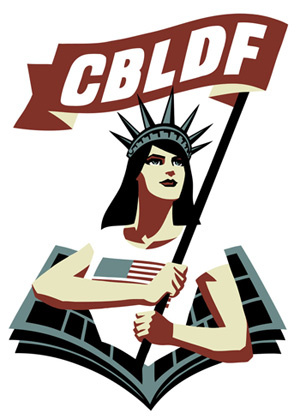The judge who issued an injunction to stop enforcement of Texas law HB900 (the READER Act), which would require any vendor who wishes to sell books to the Texas school system to provide ratings as to the level of sexual explicitness (see “Judge Halts Enforcement of Texas Book-Rating Law”), has released a written opinion that states the law is unconstitutional.
The court case arose from a lawsuit brought by retailers and free-speech organizations, including the Comic Book Legal Defense Fund (see “CBLDF, ABA, AAP, Booksellers Sue Over New Texas Law”) asking the court to block enforcement of the law. In addition to granting that injunction, Judge Alan D. Albright of the U.S. District Court for the Western District of Texas denied a motion to dismiss by the defendants, who are all Texas officials.
In the written opinion, Judge Albright stated that the law violated the First Amendment because it was too vague and because it compelled booksellers to publish book ratings that they may not agree with. He also pointed to the burden the it put on booksellers, who would have to provide ratings not only for all their new books but also, retroactively, for all books already sold to school districts. “READER’s requirements for vendors are so numerous and onerous as to call into question whether the legislature believed any third party could possibly comply,” he wrote, later noting that Blue Willow Bookstore, one of the plaintiffs, estimated the cost of rating each book according to the state standards at $200-$1,000 per title, and the cost of the retroactive rating and any recalls at between $4 million and $500 million, for a store whose annual sales are about $1 million.
The judge also objected to the unlimited power the state gives the Texas Education Agency (TEA) to overrule the ratings, saying, “the statute provides the TEA unlimited authority to undermine every minute of the work that the vendors put into rating books without providing any blueprint for the standard that will be employed for this review.” In addition, he said, “There is precious little if any language in the statute to ensure that any decision made by the TEA with respect to the rating of any book will be any more ‘accurate’ (whatever that means) allowing for the enormous possibility if not probability that it will be entirely arbitrary and capricious (at best). In other words, vendors must decide between either accepting the state administrative agency substituted speech as their own or being effectively blacklisted.”
In addition, Judge Albright described the plaintiffs as “confused and unaware of how the law would actually function in practice,” although the hearing took place just a few days before it would take effect. That included the question of who would have the power to enforce the law, or indeed if there would be any enforcement mechanism at all; he quoted the defendants’ response as “That’s a good question. A good question that I don’t know that anybody has thought that through yet.” Similarly, the defendant’s counsel could not answer questions about what would trigger a review by the TEA of a book’s ratings and whether there could be an appeal. And when he asked how the vendors could seek relief under the law if they were harmed by it, the defendants’ lawyer said “Well, your Honor, maybe the answer is they can’t.”
In conclusion, Judge Albright wrote, “READER misses the mark on obscenity with a web of unconstitutionally vague requirements. And the state, in abdicating its responsibility to protect children, forces private individuals and corporations into compliance with an unconstitutional law that violates the First Amendment.”
Source: ICv2


